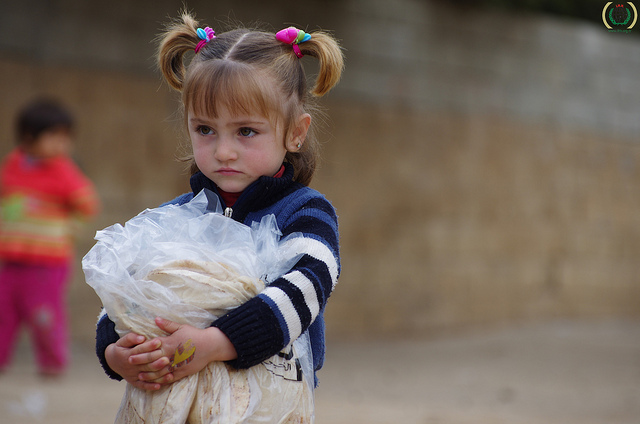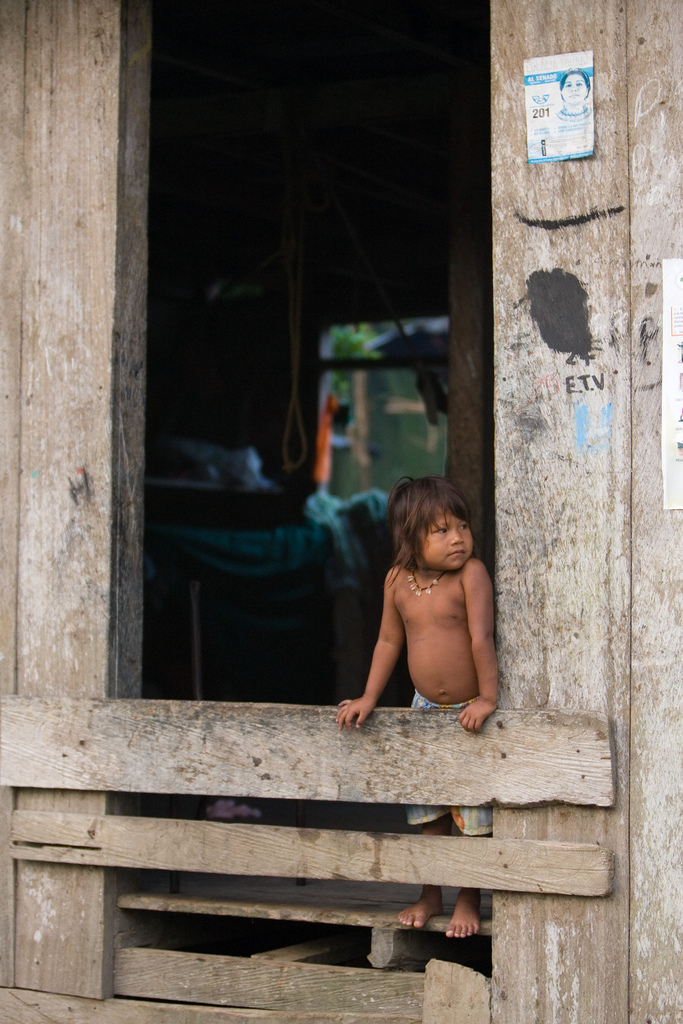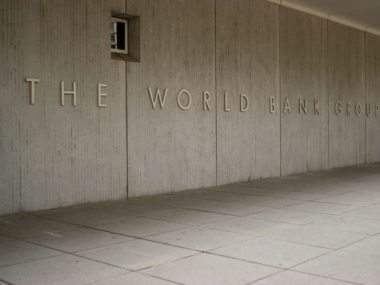By Cullen Hendrix for Denver Dialogues
If the first casualty of war is the truth, the second is usually full stomachs. While the question of whether food insecurity causes conflict remains contested, the reciprocal—whether conflict causes food insecurity—is not. Conflict, especially civil conflict, is a massive contributor to acute food insecurity. Population displacement, destruction of cropland and processing centers, and large increases in the cost (and risk) of transshipment, and deliberate food denial (or “starvation siege” tactics) often cause food prices in active conflict zones to spike and availability to plummet. To wit, by the third quarter of 2015, wheat flour and rice prices in battle-ravaged Eastern Ghouta, Syria, had increased by factors of eleven and fifteen from pre-war (August 2011) prices and were several times higher than prices in nearby and comparative stable Damascus. Despite global food prices having come down from historic highs, a mixture of transshipment barriers and donor fatigue is threatening the food security of those lucky enough to escape the fight. In September, budget shortfalls forced the World Food Programme to halve its assistance to Syrian refugees in Jordan, leaving hundreds of thousands of the displaced scrambling for sustenance. The situation is sufficiently dire that many Syrians are actually returning to Syria—to an active conflict zone—in search of food. By late October, the WFP was able to resume operations. Budget restraints, however, mean that 15 percent of the identified need is not being met.
Faced with a humanitarian crisis like Syria, the obvious and seemingly ethical response is to provide emergency food assistance to affected populations. Some, including my colleagues at Korbel, have even argued that this can and should be done using military force: when governments or rebels wield hunger as a weapon, the UN Security Council should be willing to intervene on humanitarian grounds. While the merits of militarized humanitarian intervention may be debated—the U.S.—led multinational effort in Somalia is not exactly a sterling example of humanitarian intervention— there is virtually unanimous consensus and a body of international law that commits the international community to address humanitarian disasters with emergency food aid.
But what if this food aid—and humanitarian intervention more generally—prolongs the very conflicts whose effects it seeks to mitigate? Scholars have pointed to humanitarian assistance, particularly in irregular conflicts, as engendering perverse incentives for armed actors, who capture and divert humanitarian assistance in order to continue to fund their war aims. The logic of the argument is relatively straightforward. First, because emergency food shipments to conflict zones are somewhat fungible (i.e., they can be captured and resold or consumed by armed actors), they constitute an often-unintended form of material support for rebels: Give a person a fish and s/he eats for a day. Give a person a fish in a conflict zone and a warlord steals it, re-sells it, and buys a few more Kalashnikovs and Hilux. Second, the provision of food and basic social services by the international community, even if imperfect, releases pressure on both the government and the rebels to negotiate a settlement: Any move that makes a hurting stalemate more tolerable reduces incentives to end it. Third, humanitarian interventions that address basic needs may free up more time for engaging in politics and resisting governments and their allies: If an army marches on its stomach, dissidents probably organize on theirs. No wonder that active food denial has been a part of counterinsurgency operations for centuries.
This debate, which began in the 1990s as a direct response to US-led intervention in Somalia and the aftermath of the Rwandan genocide, was reinvigorated recently by an article by Nathan Nunn and Nancy Qian in the highly influential American Economic Review. The article demonstrates between 1971 and 2005, US food aid was conflict prolonging, and especially so in countries with histories of recent conflict. That is, US food aid was most conflict-prolonging in precisely the kind of fragile, post-conflict states where it is most needed. Predictably (and not altogether unpersuasively), USAID challenged these findings, but not before articles in Foreign Affairs, the Washington Post, and the Economist seized on them to question the wisdom of emergency food assistance.
As an academic debate, the literature on whether humanitarian assistance prolongs conflict is quite stimulating. As a guide for policy, however, it has some significant shortcomings. First, it conflates average effects of past interventions for prediction of how future interventions will work. That Nunn and Qian show an average increase in conflict duration as food aid increases is not the same as saying that food aid will always translate into longer wars and more suffering. Context and assistance targeting matter greatly. Assistance channeled through effective multilaterals like the World Food Programme and targeting specific UN-designated refugee populations may be better at separating the “wolves from the sheep”, as former UN Representative to Rwanda, Shahyar Khan, referred to it.
Second, the discussion presumes that conflict termination is “good” and conflict prolongation is “bad” eo ipso. But conflict termination is not the same as a just peace; stability is not at all times and in all places a virtue. I was reminded of this when strolling by the Anne Frank house in Amsterdam earlier this month. Lend-Lease certainly prolonged WWII and attendant human suffering, but the alternative would have been even more intolerable. Fighting may be always the least-best option, but some things are worth fighting for. Given present circumstances, curtailing humanitarian assistance to Syrian refugees might shorten the Syrian conflict, but it might also leave the fundamental issues at stake—exclusionary rule and repressive government behavior toward ethnic and religious minorities— unchanged, though some governance outcomes could conceivably be much worse than the status quo ex-ante.
Responding to humanitarian crises in Syria and elsewhere inherently entails arduous ethical tradeoffs: A dollar invested in providing food in Syria is a dollar unavailable to do the same in Central African Republic. This is true regardless of whether that very food assistance prolongs the human misery it was intended to address. Whatever the implications for conflict dynamics and imperfections in delivery, emergency food assistance is still the ethical thing to do. The deeper question is how to target it in ways that, as Henk-Jan Brinkman and I have argued, not only address the crisis of the day but can contribute to lasting peace in the future. Thus, the relevant question is not whether humanitarian assistance prolongs conflict but whether humanitarian assistance can be delivered in ways that promote sustainable, peaceful outcomes.







2 comments